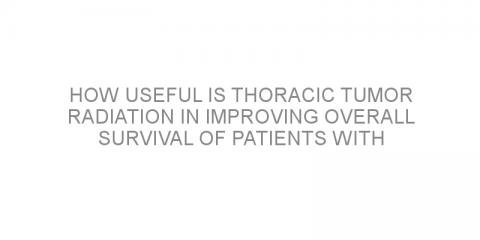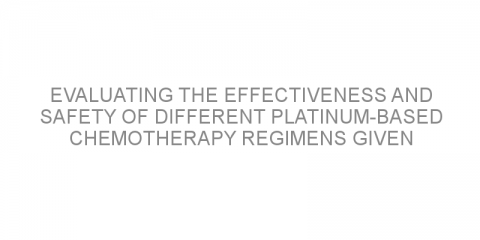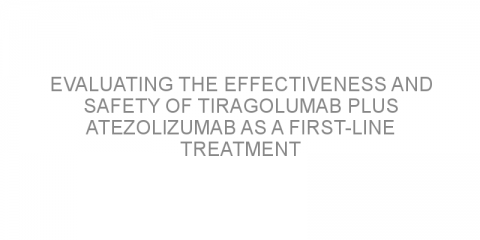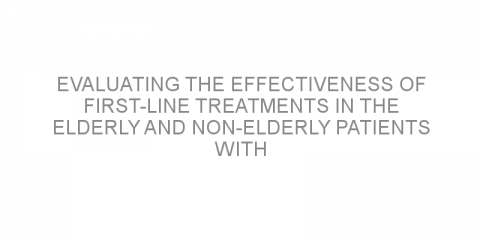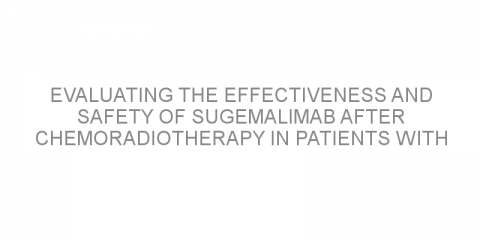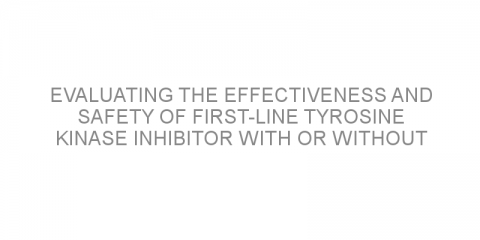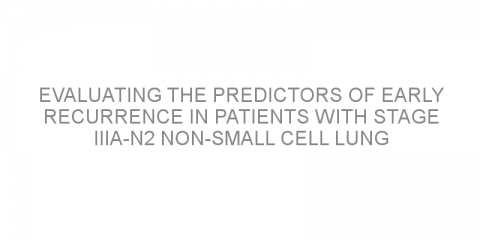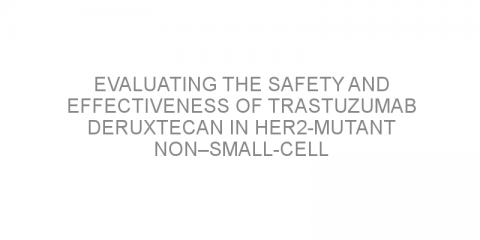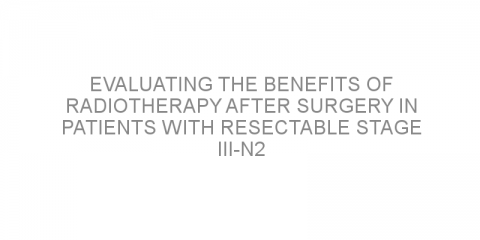In a nutshell This study investigated the effect of thoracic tumor radiotherapy on overall survival (OS) in patients with metastatic non-small-cell lung cancer (NSCLC) with malignant pleural effusion (MPE). The authors concluded that thoracic tumor radiotherapy effectively improved OS with acceptable toxicity levels in these patients. Some background...
Read MoreType of lung cancer-Non-small cell lung carcinoma (NSCLC) Posts on Medivizor
Evaluating the effectiveness and safety of different platinum-based chemotherapy regimens given after surgery for the treatment of early-stage resected NSCLC.
In a nutshell This study evaluated the effectiveness and safety of different platinum-based chemotherapy regimens given after surgery for the treatment of early-stage resected non-small cell lung cancer (NSCLC). The authors concluded that the combination of cisplatin (Platinol)-vinorelbine (Nevelbine) improved the outcomes of these patients. Also, the...
Read MoreEvaluating the effectiveness and safety of anlotinib as a third-line treatment in patients with advanced NSCLC.
In a nutshell This study evaluated the effectiveness and safety of anlotinib (AL3818) as a third-line treatment in patients with advanced non-small cell lung cancer (NSCLC). The data showed that anlotinib as a third-line treatment was effective with manageable side effects in these patients. Some background NSCLC is the most common form of lung...
Read MoreEvaluating the effectiveness and safety of tiragolumab plus atezolizumab as a first-line treatment for patients with non-small cell lung cancer.
In a nutshell This study evaluated the effectiveness and safety outcomes of atezolizumab (Tecentriq) alone or with tiragolumab (MTIG7192A) as a first-line treatment for patients with non-small cell lung cancer (NSCLC). The data showed that tiragolumab plus atezolizumab significantly improved the objective response rate and the survival without...
Read MoreEvaluating the effectiveness of first-line treatments in the elderly and non-elderly patients with advanced EGFR-mutated NSCLC.
In a nutshell This study evaluated the effectiveness of different first-line treatments in elderly and non-elderly patients with advanced epidermal growth factor receptor (EGFR)-mutated non-small cell lung cancer (NSCLC). The data showed that osimertinib (Tagrisso) was the best treatment regimen to improve survival without cancer worsening in elderly...
Read MoreEvaluating the effectiveness and safety of sugemalimab after chemoradiotherapy in patients with unresectable stage III non-small cell lung cancer.
In a nutshell This study investigated the effectiveness and safety of sugemalimab (Cejemly) after treatment with concurrent or sequential chemoradiotherapy (CRT) in patients with unresectable stage III non-small cell lung cancer (NSCLC). The data showed that sugemalimab significantly increased the survival without cancer worsening with manageable...
Read MoreEvaluating the effectiveness and safety of first-line tyrosine kinase inhibitor with or without radiotherapy for the treatment of patients with oligometastatic EGFR-mutated NSCLC.
In a nutshell This study evaluated the effectiveness and safety of first-line tyrosine kinase inhibitors (TKIs) with or without radiotherapy (RT) for the treatment of patients with oligometastatic (OM) non-small-cell lung cancer (NSCLC) having genetic mutations in the epidermal growth factor receptor (EGFR). The data showed that TKI plus RT was safe and...
Read MoreEvaluating the predictors of early recurrence in patients with stage IIIA-N2 non-small cell lung cancer after surgery.
In a nutshell This study evaluated the predictors of early recurrence in patients with stage IIIA-N2 non-small cell lung cancer (NSCLC) after surgery. The data showed that early recurrence after surgery was associated with poor survival outcomes in patients with stage IIIA-N2 NSCLC. Smoking history, large tumor size, increased lymph node ratio, and...
Read MoreComparing the effectiveness and safety of first-line treatment options in patients with advanced ALK-rearranged NSCLC.
In a nutshell This study compared the effectiveness and safety of first-line treatment options in patients with advanced ALK-rearranged non-small-cell lung cancer (NSCLC). The data showed that alectinib (Alecensa) and lorlatinib (Lorbrena) were the most effective and safest first-line treatment options for these patients. Some background...
Read MoreEvaluating the safety and effectiveness of trastuzumab deruxtecan in HER2-mutant non–small-cell lung cancer.
In a nutshell This study evaluated the effectiveness and safety of trastuzumab deruxtecan (Enhertu) in patients with previously untreated metastatic HER2-mutant non-small-cell lung cancer (NSCLC). The data showed that trastuzumab deruxtecan was safe and showed strong anticancer activity in these patients. Some background NSCLC is the most common form...
Read MoreComparing the effectiveness and safety of single and double immune checkpoint inhibitor-based first-line treatments for advanced non-small cell lung cancer.
In a nutshell This study compared the effectiveness and safety outcomes of single and double immune checkpoint inhibitors (ICI)-based treatments in patients with advanced non-small-cell lung cancer (NSCLC). The data showed that the effectiveness and safety of both single and double ICI-based treatments were similar and higher...
Read MoreEvaluating the benefits of radiotherapy after surgery in patients with resectable stage III-N2 non-small cell lung cancer.
In a nutshell This study evaluated the benefits of postoperative radiotherapy (PORT; radiation after surgery) in patients with resectable stage III-N2 non-small-cell lung cancer (NSCLC). The data showed that PORT significantly increased survival without disease progression and reduced the risk of cancer relapse for these patients. Some background...
Read More
